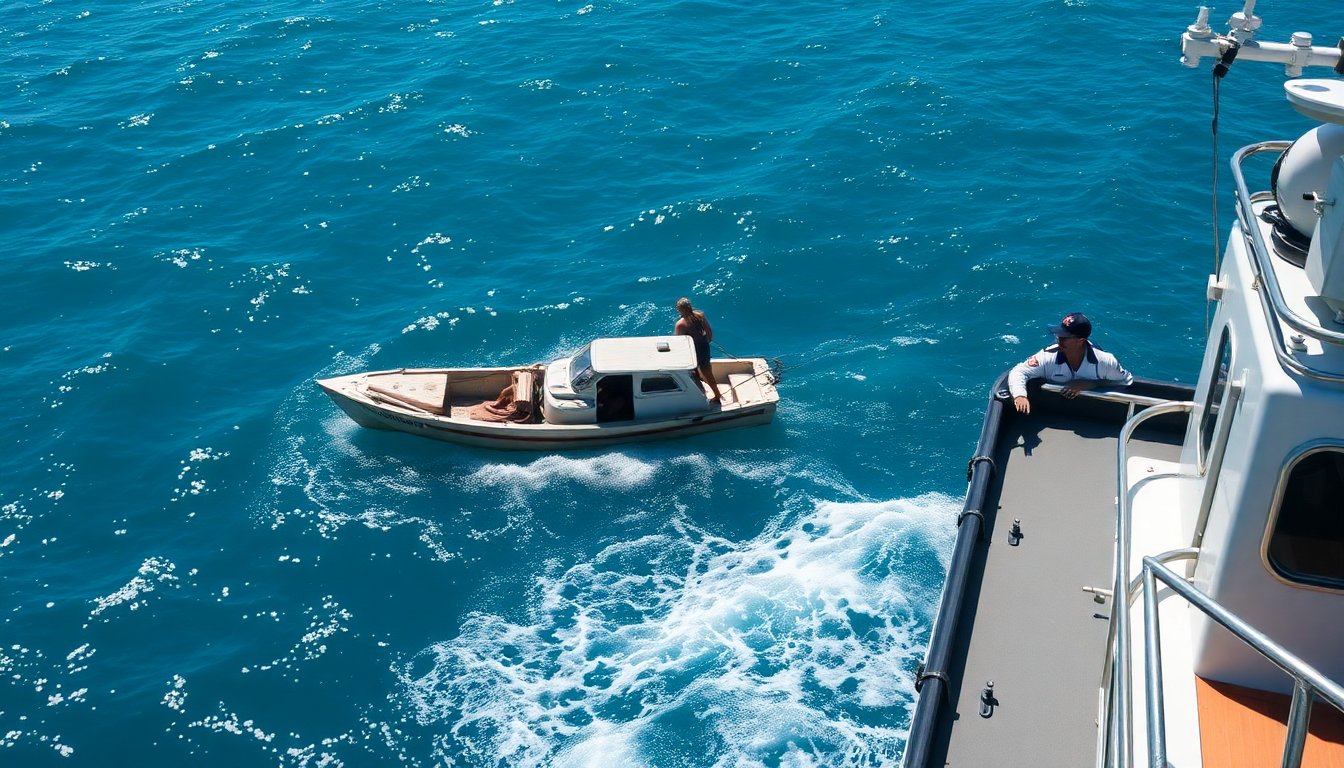Table of Contents
In a bold display of enforcement, the United States has undertaken an operation aimed at curbing drug trafficking in the Caribbean Sea. This initiative marks the sixth known strike against suspected smugglers in the region adjacent to Venezuela. Notably, some individuals managed to survive this encounter.
The repeated interventions by U.S. authorities signal a persistent commitment to tackling the pervasive issue of drug smuggling, particularly in waters often exploited by traffickers. This operation reflects the ongoing challenges faced by law enforcement and underscores the complexities involved in maritime drug interdiction efforts.
The facts
The operation targeted waters notorious for use by drug runners. U.S. Coast Guard and naval forces collaborated to intercept a vessel believed to be involved in transporting illicit substances. During this encounter, authorities detained several survivors, marking a significant moment in a series of operations aimed at dismantling drug trafficking networks.
Prior operations had occurred without survivors, raising concerns about the methods employed by smugglers and the dangers faced by those involved in this trade. The survival of some individuals in this latest operation could provide valuable intelligence regarding smuggling routes and operational tactics.
Background on drug trafficking in the Caribbean
The Caribbean has long been a pivotal point for drug trafficking activities due to its geographical location. Proximity to South America, particularly Colombia and Venezuela, makes it an ideal transit zone for narcotics heading to the United States and beyond. Despite law enforcement patrols, the sheer scale of operations makes it challenging to eradicate the problem.
Smugglers have developed increasingly sophisticated techniques to evade capture, including fast-moving boats and advanced communication systems. This ongoing cat-and-mouse game between law enforcement and traffickers highlights the need for continued vigilance and innovative strategies in combating drug smuggling.
The implications
The implications of this operation extend beyond immediate law enforcement efforts. The capture of survivors may lead to a deeper understanding of the smuggling networks operating in the region. Information gathered from these individuals can assist authorities in disrupting future operations and dismantling the infrastructure that supports narcotics trafficking.
Moreover, the operation highlights the U.S. government’s resolve to collaborate with regional partners in addressing this pressing issue. By engaging with local authorities and international law enforcement agencies, the United States aims to foster a coordinated response to the drug trade that threatens both national security and public health.
The news broke at a critical time, reflecting the complexities involved in maritime law enforcement. The survival of some individuals during this intervention raises questions about the risks associated with drug trafficking and opens the door for potential intelligence that could reshape ongoing efforts to combat this crisis.
As the U.S. continues its campaign against drug smuggling in the Caribbean, operations like this one are crucial in the broader strategy to dismantle criminal networks. Each engagement provides law enforcement with more insights, pivotal in turning the tide against drug trafficking in the Caribbean and ensuring safer waters for all.


